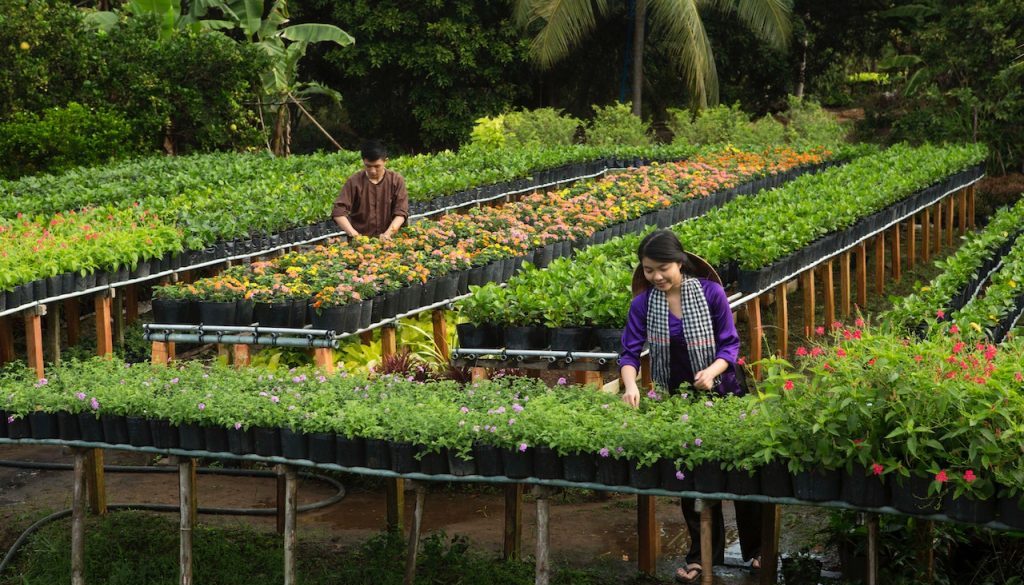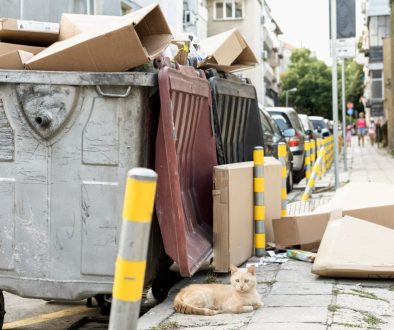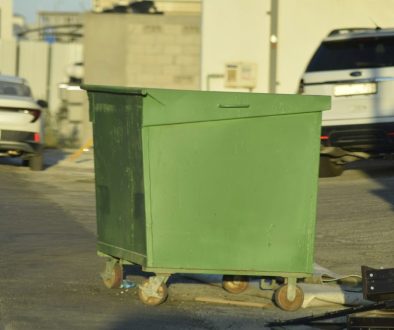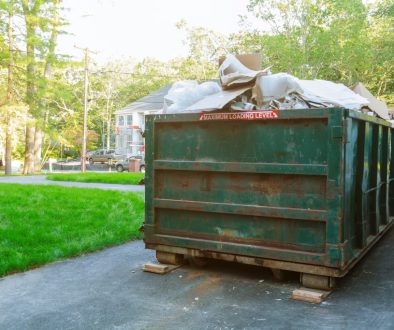Whilst gardens are beautiful, their maintenance and upkeep can produce much green waste. Green waste is organic matter, such as leaves, grass, and other plant matter, that can be recycled and used as compost or mulch.
There are many benefits to recycling green waste. It helps reduce the waste sent to landfills, where it decomposes and produces methane, a greenhouse gas. Green waste also enriches the soil, helps conserve water, and even saves you money on your gardening costs.
There are a few ways to recycle green waste. One is to compost it. This can be done at home, or many commercial composting facilities will take your green waste and turn it into rich compost.
Another way to recycle green waste is to use it as mulch. Mulch is a layer of material, such as leaves, grass, or bark, spread over the soil to help conserve moisture and keep weeds down. It can also help prevent erosion and provide nutrients to the soil.
In today’s article, let’s explore the various types of green waste you can find in your garden and how to dispose of them. Here’s what you need to know:
Types of Green Waste in the Garden
To recycle it properly, it is essential to know what type of green waste you have in your garden. Here are the different types of green waste:
- Grass clippings
- Leaves
- Twigs
- Branches
- Pine needles
- Flowers
- Fruit and vegetable scraps
Other Ways to Dispose of Green Waste
Recycling
Grass clippings, leaves, twigs, and branches can all be composted. Pine needles can be used as mulch or added to compost. Flowers can be dried and used in potpourri or crafts. Fruit and vegetable scraps can be composted or added to a compost bin.
When recycling green waste, it is essential to know what can and cannot be recycled. Some things, like plastic bags and Styrofoam, cannot be recycled. Others, like paper and glass, can be recycled.
The best way to recycle green waste is to compost it. This can be done by starting a compost pile or bin. You can also buy a compost tumbler which will make composting easier. To compost, you will need to add a layer of green and brown waste. Brown waste includes things like dead leaves, twigs, and branches. You will also need to add water and turn the compost regularly.
Composting is a great way to reduce the amount of waste in your garden and to create a natural fertilizer for your plants. It is also a great way to help the environment.
Hire a Skip
It’s that time of year again when the garden produces an abundance of green waste. If you’re like most people, you don’t have the time or energy to deal with all of it yourself. The good news is that you can easily hire a skip for your garden’s green waste.
There are many benefits to hiring a skip for your garden’s green waste. Firstly, it will save you from having to spend hours bagging up some of the green waste and then lugging it to the dump. Second, it’s a great way to recycle. All green waste will be recycled and used to create compost or mulch.
Third, hiring a skip is also a great way to reduce the amount of waste that goes to landfill. You’ll do your part to help the environment by recycling your garden’s green waste. And finally, it’s a great way to save money.
Hiring a skip is much cheaper than paying for a collection service or taking multiple trips to the dump.
If you’re interested in hiring a skip for your garden’s green waste, there are a few things you need to know. First, you’ll need to find a reputable company that offers this service. Many companies provide skips for hire, so take your time and find the right one.
Second, you’ll need to decide what size skip you need. The size of the skip will depend on the amount of green waste you have. Be sure to overestimate the amount of waste you have so you don’t end up with a skip that’s too small.
Third, you’ll need to choose a location for the skip. Choosing a location close to your garden is essential, so you don’t have to travel far with the green waste. And finally, you’ll need to make sure you have a way to get the green waste to the skip.
The Benefits of a Clean Garden
A clean garden is a happy garden! But beyond that, there are many benefits to keeping your garden free of debris and dirt. Here are just a few:
- Aesthetics: Let’s face it, a clean garden looks better. Neat rows of plants, trimmed hedges and swept paths create a pleasing appearance that invites you to spend time outdoors.
- Pest Control: Dirty gardens are a haven for pests like rodents, insects, and slugs. Keeping your garden clean will reduce the chances of these critters taking up residence and damaging your plants.
- Disease Prevention: Garden diseases can spread quickly, especially if your plants are already stressed from being overcrowded or battling pests. Keeping your garden clean will help prevent the spread of disease and give your plants a better chance to stay healthy.
- Better Air Quality: Plants play an important role in purifying the air, and an immaculate garden will have fewer pollutants and dust particles in the air than a dirty one. This is especially important if you have allergies or asthma.
- Improved Plant Growth: Plants need sunlight and fresh air to grow, and a clean garden will have plenty of both. In addition, debris can block water absorption and nutrients, so keeping your garden clean will help your plants stay healthy and vigorous.
The Bottom Line
Hiring a skip may be the best option if you are looking for an effective and affordable way to keep your garden clean. Skips can be hired from most major hardware stores or online and delivered to your door. Once you have finished using the skip, simply call the company to have it collected.
If you’re looking for a domestic skip hire, you’re in the right place. Enviro Skip Hire is a family-run skip hire and aggregate company servicing Staffordshire. Check out our wide range of skip sizes and aggregates. Contact us today to get started and learn more!




